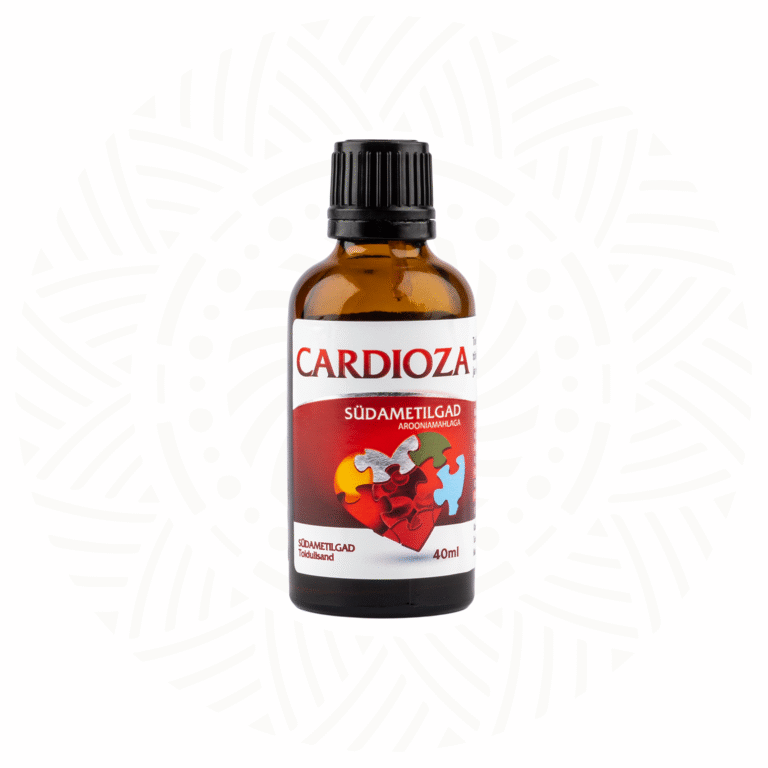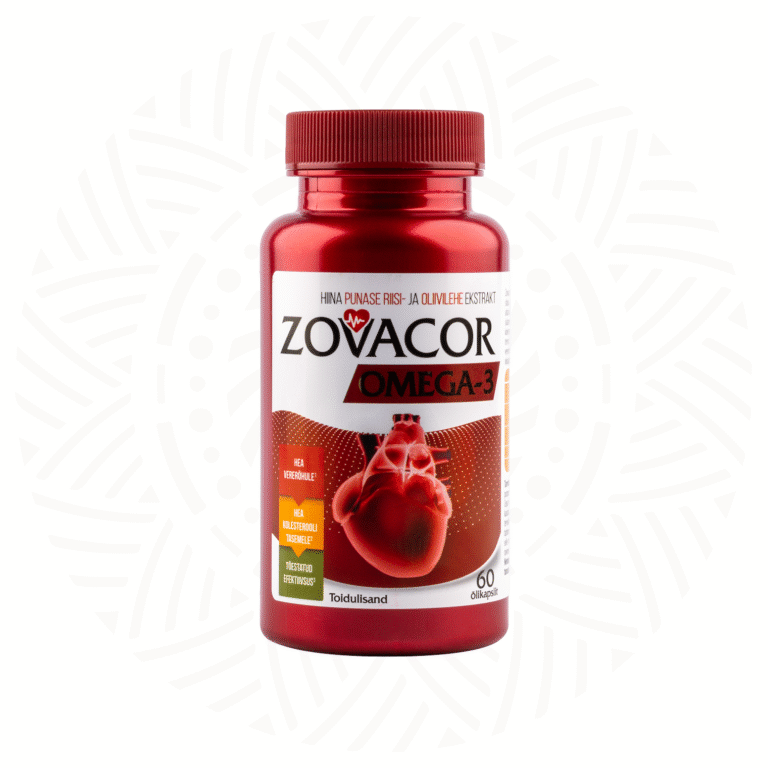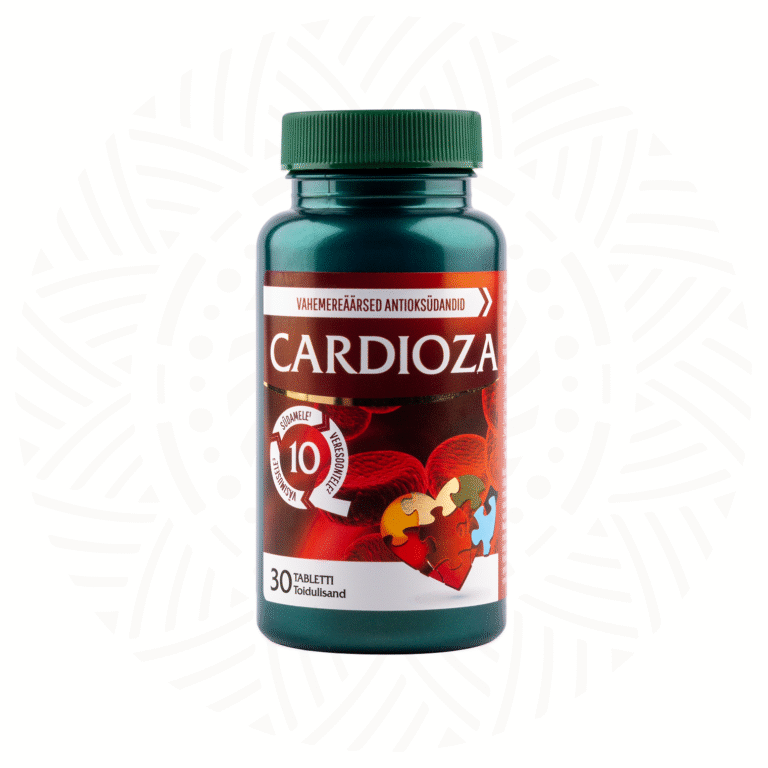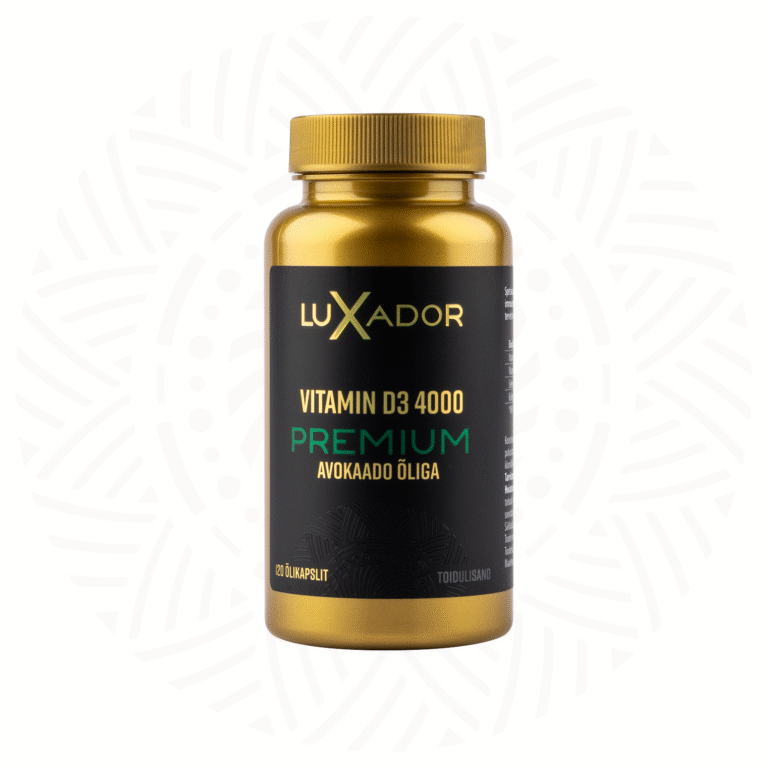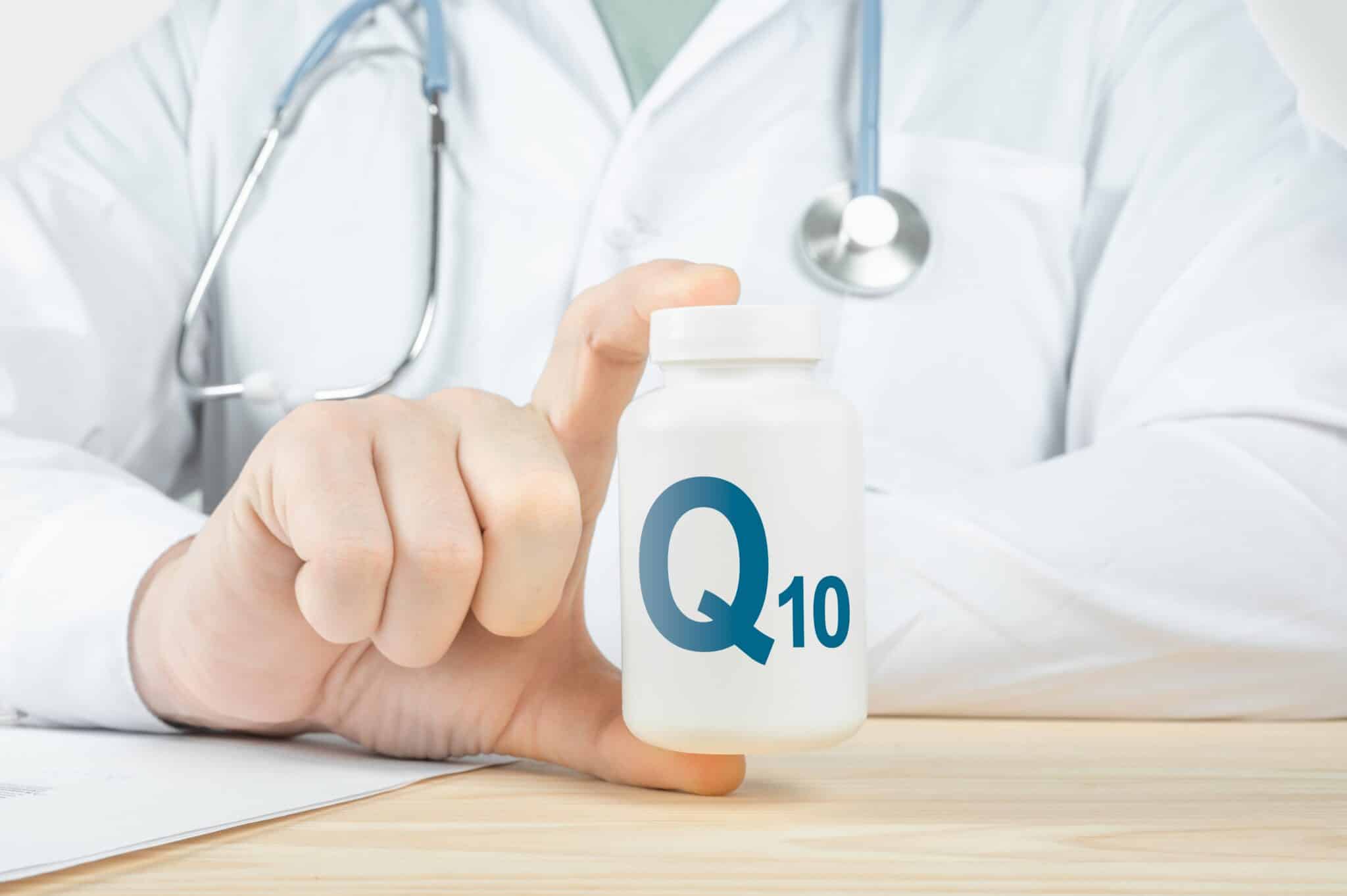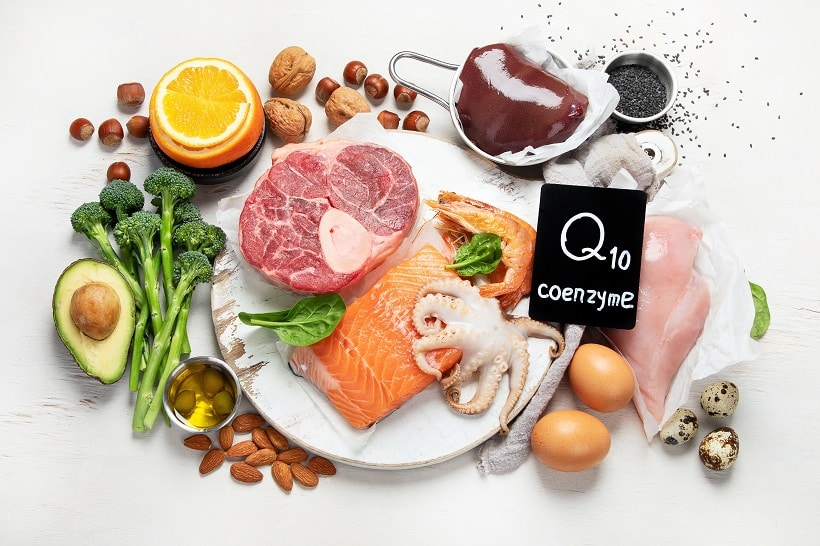Coenzyme Q10 is a powerful antioxidant that helps slow down aging, supports the body’s energy production, and protects cells from damage. It is an essential component of all body cells, especially in the heart, where energy demand is the highest. Although the body can synthesize coenzyme Q10 itself, its production starts to decline from the age of 20.
Below, we will explore the benefits of Q10 and share tips on selecting a Q10 supplement to balance its deficiency in the body and support good health.
Why Do We Need Q10?
Coenzyme Q10 is an enzyme essential in every human cell. It is needed for energy production and normal heart and muscle function. Coenzyme Q10 helps maintain normal blood pressure, increases physical endurance, slows down aging processes, and enhances concentration and analytical ability. Q10 supports the body’s health during challenging periods, such as stress or viral infections.
Why Does Q10 Level Decline in the Body?
Coenzyme Q10 levels begin to decline from the age of 20, and Q10 deficiency accelerates with aging, especially after the age of 60. However, several other factors, besides age, can contribute to Q10 deficiency in the body:
Age-Related Decline:
- As we age, the body’s ability to produce Q10 decreases.
- The number and function of mitochondria, the energy-producing organelles in cells, decline.
Diseases and Conditions:
- Heart diseases
- Muscle diseases
- Hypertension
- Small intestine diseases
- Liver diseases
- Chronic alcoholism
Medications:
- Cholesterol-lowering drugs (statins)
- Beta-blockers
- Antidepressants
- Oral contraceptives
- Some antibiotics
Other Factors:
- Low-fat diet
- B-vitamin deficiency
- Prolonged stress
- Excessive iron intake
What Are the Symptoms of Q10 Deficiency?
The symptoms of Q10 deficiency vary depending on a person’s age, health condition, and lifestyle. Signs of Q10 deficiency may include:
- Lack of energy
- Weakness
- Reduced endurance
- Immune system disorders
- Increased risk of cardiovascular diseases
- Nervous system disorders
- Accelerated aging
Who Should Consider Taking a Q10 Supplement?
- Statin users – Statins, used to lower cholesterol levels, reduce Q10 levels in the body. Therefore, it is especially important for statin users to take Q10 supplements.
- People over 40 – From the age of 20, Q10 levels in the body begin to decline. By the time you reach your forties, this decline becomes more noticeable, making it essential to include Q10 in your daily routine.
- Physically active individuals – Physical activity increases the body’s need for Q10.
- People with a weaker immune system – Q10 helps the body fight infections and speeds up recovery.
- Those experiencing persistent fatigue – Q10 helps reduce fatigue and boost energy levels.
- People with small intestine diseases – These conditions reduce Q10 absorption, leading to a rapid deficiency.
- Individuals with B-vitamin deficiency – B-group vitamins are necessary for Q10 synthesis. If B-vitamin levels are low, Q10 levels in the body will also be reduced.
What Are the Contraindications for Q10?
In certain cases, Q10 supplementation may not be suitable. While Q10 is generally a safe supplement, it is important to be aware of potential risks and consult a doctor before taking it.
Here are some situations where Q10 supplements may not be advisable:
- Pregnancy and breastfeeding: There is insufficient research on the safety of Q10 for pregnant and breastfeeding women. It is recommended to consult a doctor before using Q10 supplements.
- Certain medical conditions: Individuals with chronic diseases such as heart failure or kidney problems should consult a doctor before taking Q10 supplements.
- Specific medications: If you are taking thyroid medication, blood thinners, or undergoing chemotherapy, it is essential to consult your doctor before taking Q10 supplements.
Q10 Helps Prevent Age-Related Health Risks
Have you ever watched children running around and wished you had the same energy? From the age of 20, the body’s natural Q10 production starts to decline, and by the age of 80, Q10 levels are lower than at birth.
To prevent Q10 deficiency as you age and reduce related health risks, it is recommended to include Q10 supplements in your daily routine, especially after the age of 40. The benefits of Q10 are enhanced when combined with antioxidants, forming a powerful combination that helps prevent premature aging, maintain energy levels, and reduce the risk of cardiovascular diseases.
Q10 Helps Reduce Side Effects of Statins
Statins are medications known for their ability to lower cholesterol levels in the blood and thus reduce the risk of cardiovascular diseases. However, one lesser-known side effect of statins is coenzyme Q10 deficiency.
Q10 is a natural antioxidant found in the human body that plays a crucial role in cellular energy production. Additionally, Q10 is essential for maintaining heart muscle health and function. Studies show that statin use reduces Q10 levels in the body by 40%. The same enzyme that statins block to lower cholesterol production is also needed for Q10 synthesis.
The combined effects of aging and statin therapy-induced deficiency lead to several unpleasant health problems, including muscle pain and weakness, fatigue, digestive issues, and even heart muscle dysfunction. Thus, paradoxically, statins may increase the risk of heart problems they are meant to prevent.
If you take statins, choose a Q10 supplement with antioxidants. Q10 combined with antioxidants forms a strong defense team that helps protect your heart and overall health while effectively reducing statin-related side effects.
Q10 Helps with Faster Recovery After a Long Illness
Q10 supports faster recovery after prolonged viral infections. After an illness, the body needs to restore energy levels and strengthen the immune system, and Q10 is an invaluable aid in this process.
Q10 has a versatile effect, supporting energy production and providing antioxidant protection. Q10 helps the body generate the necessary energy for daily functions and protects cells from viral oxidative stress. When combined with antioxidants, Q10’s effects become even more effective, as antioxidants help protect Q10 molecules from degradation, ensuring their optimal efficiency.
If you frequently struggle with illnesses and recovery from viral infections takes a long time, Q10 with antioxidants is exactly what you need. A Q10 supplement combined with antioxidants helps the body recover faster after a long illness, restores energy levels, and strengthens the immune system, allowing you to enjoy life fully again.
Q10 Helps Maintain Physical Activity
A physically active lifestyle demands a lot from the body – energy, endurance, and quick recovery. This is where Q10 comes in as your secret weapon for maintaining and restoring performance.
- Energy Production: Q10 plays a central role in energy production in the heart. It helps convert food into energy, ensuring the power needed for intense workouts.
- Endurance: Q10 supports endurance, allowing for longer and more intense training sessions. Fatigue occurs more slowly, enabling better focus on workouts.
- Faster Recovery: Q10 promotes faster muscle recovery, reducing post-workout muscle pain and tension. This accelerates the recovery process and allows for quicker return to training.
- Antioxidant Protection: Physical activity increases oxidative stress, but Q10, together with antioxidants, helps neutralize free radicals, reducing the risk of damage.
If you are physically active, choose Q10 with antioxidants. This combination boosts energy levels, increases endurance, accelerates recovery, and reduces muscle pain. It is an essential companion for an active lifestyle, helping you achieve your fitness goals more efficiently and enjoy an active life.
Q10 Helps Prevent Serious Cardiovascular Diseases
Fatigue is a common concern among people with heart disease, significantly affecting their quality of life and limiting physical capacity. One possible reason for this is the decline in coenzyme Q10 levels in the body.
Q10 is essential for energy production in cells, particularly in heart cells. Heart diseases and cardiovascular medications cause a drop in Q10 levels, reducing the ability of heart cells to generate sufficient energy and leading to chronic fatigue.
If you are taking cardiovascular medications and constantly feel fatigued, it is crucial to include a Q10 supplement with antioxidants in your daily vitamin and mineral routine. This simple addition helps prevent the progression of chronic heart diseases and supports an active lifestyle. With this combination, you gain additional energy that benefits both heart health and overall well-being.
Q10 Supplement Helps Maintain Normal Blood Pressure
High blood pressure is a silent threat that affects many people. It is important to know that elevated blood pressure damages the heart, blood vessels, and other organs, increasing the risk of heart attacks, strokes, and heart failure.
Q10 is a crucial enzyme that supplies energy to the heart and keeps blood vessels healthy. However, high blood pressure or blood pressure medications can lower Q10 levels in the body. If you have high blood pressure or are already taking medications, choose Q10 with antioxidants because:
- Q10 supplements help increase Q10 levels in the body and effectively support heart function.
- Antioxidants protect blood vessels from damage.
Together, they help:
- Keep blood pressure under control
- Maintain vascular elasticity
- Reduce the risk of cardiovascular diseases.
Q10 – A Power Source to Combat Fatigue
Do you wake up in the morning still feeling tired? Constant fatigue is a symptom that, if ignored, can lead to serious health issues. If you feel distracted and find it difficult to concentrate, it’s time to look for new ways to boost your energy levels. One possible solution is a Q10 supplement.
Q10 is an enzyme involved in cellular energy production. It is especially important for heart cells, which require energy for continuous function. With aging and certain chronic conditions, Q10 levels in the body decrease. This decline worsens fatigue and reduces overall performance.
If you feel your energy reserves are depleted, Q10 with antioxidants may help. This powerful combination enhances cellular energy production, providing more strength and endurance to cope with daily challenges. The synergy of Q10 and antioxidants helps:
- Increase energy levels
- Reduce fatigue
- Improve both physical and mental performance
- Strengthen the immune system.
Choose Q10 wisely and stay healthy!
